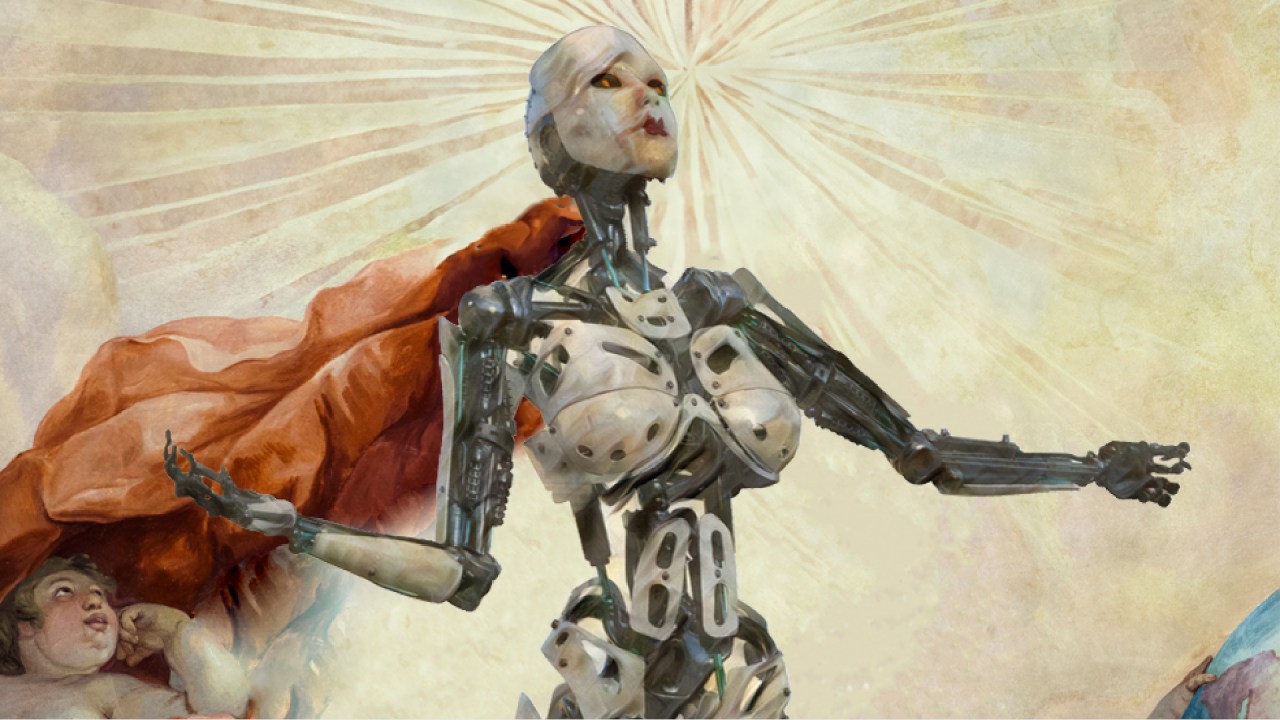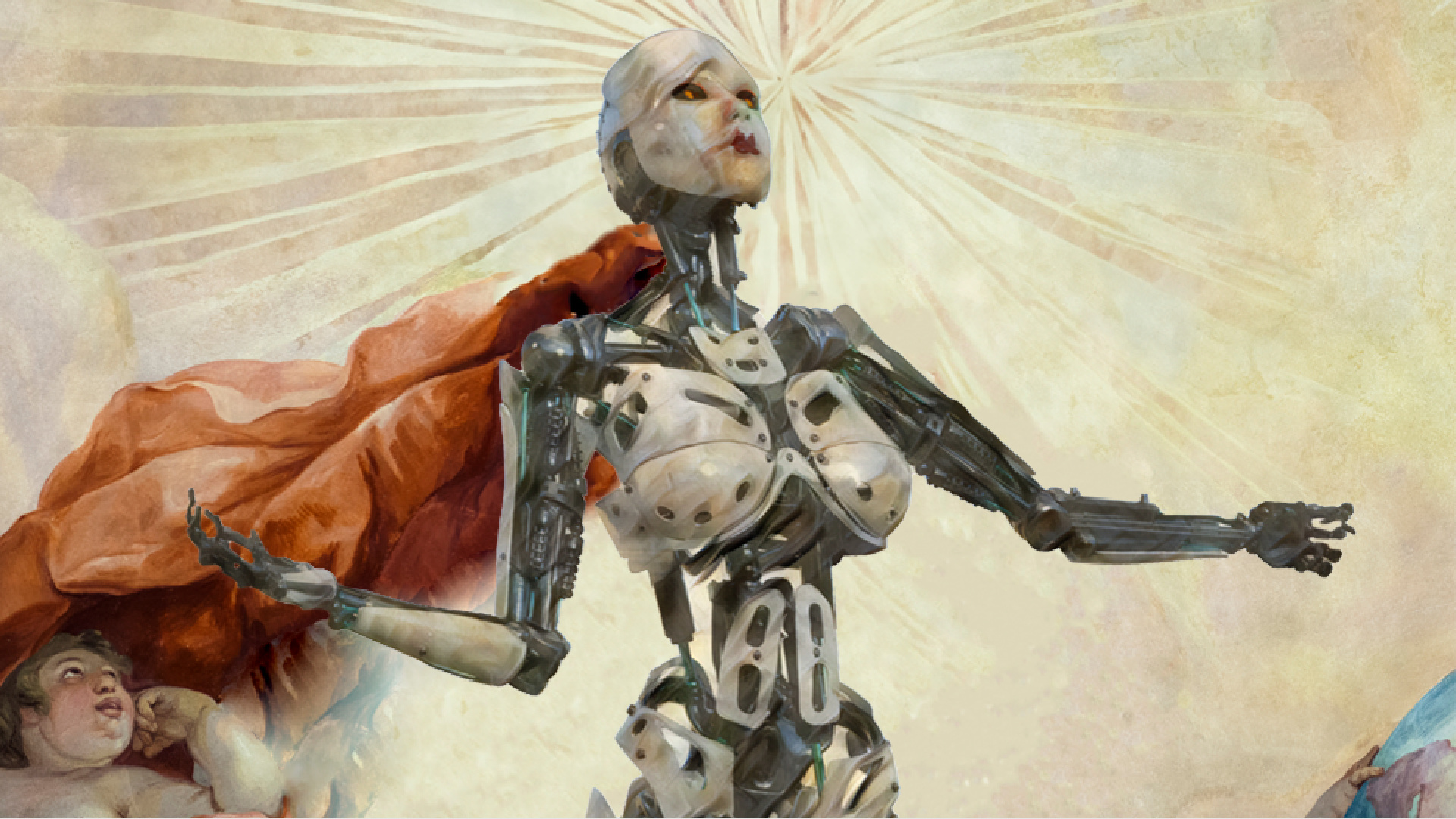Something weird is happening in the world of AI. On Jesus-ai.com, you can pose questions to an artificially intelligent Jesus: ‘Ask Jesus AI about any verses in the Bible, law, love, life, truth!’ The app Delphi, named after the Greek oracle, claims to solve your ethical dilemmas. Several bots take on the identity of Krishna to answer your questions about what a good Hindu should do. Meanwhile, a church in Nuremberg recently used ChatGPT in its liturgy – the bot, represented by the avatar of a bearded man, preached that worshippers should not fear death.
Elon Musk put his finger on it: AI is starting to look ‘godlike’. The historian Yuval Noah Harari seems to agree, warning that AI will create new religions. Indeed the temptation to treat AI as connecting us to something superhuman, even divine, seems irresistible.
New godbots are coming online – and we should be afraid. They raise two serious concerns: first, they are powerful tools that bad actors can use to victimise others; second, even when well-intentioned, these bots trick users into surrendering their autonomy and delegating ethical questions to others.
The temptation to treat AI as connecting us to something superhuman seems irresistible
It’s important to understand what is novel about godbots.

Get Britain's best politics newsletters
Register to get The Spectator's insight and opinion straight to your inbox. You can then read two free articles each week.
Already a subscriber? Log in







Comments
Join the debate for just $5 for 3 months
Be part of the conversation with other Spectator readers by getting your first three months for $5.
UNLOCK ACCESS Just $5 for 3 monthsAlready a subscriber? Log in